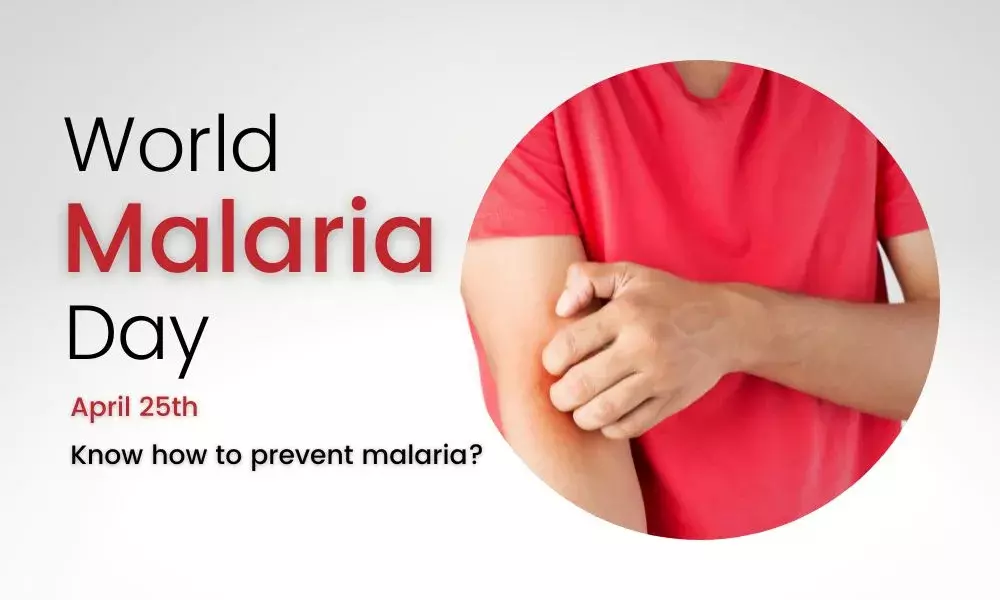Can Malaria be life threatening. Know how it can be identified and prevented.
1. When & Why is World Malaria Day Observed?
World Health Organisation (WHO) observes 25th April every year as World Malaria Day to spread awareness about malaria across the globe.
According to Dr. Poonam Khetrapal Sing, WHO Regional Director for South-East Asia, we have lost track of malaria amidst the rise and combat of the global pandemic.
As per WHO, about 247 million new cases of malaria were reported this year, compared to 245 million cases last year. Among the reported cases, there were 6 lakh plus deaths caused by malaria.
Malaria is a severe infection caused by parasites entering our body when infected mosquitoes bite us. If malaria is not treated on time, it may cause the death of the infected person.
2. Is It Dangerous?
Increasing cases of malaria are a global concern; it is dangerous and life-threatening if it is not treated well in time.
Malaria can cause health problems such as brain damage, seizures, organ failure, trouble breathing, and death if it is not treated.
However, if treated well, it is curable and preventable.
Malaria is common in areas with hot and humid climatic conditions. It is widespread in developing countries with a humid and warm climate. Some of the places which face a higher risk of malaria are:
-
Large parts of Asia and Africa
-
Central and South America.
-
Eastern Europe.
-
Dominican Republic and other areas in the Caribbean.
-
Islands in the Pacific Ocean (Oceania).
Older people, young children, and pregnant women are more likely to die from malaria. People who live in poor health conditions are at a higher risk to have complications from the disease.
3. What causes malaria?
Mosquitos are the carrier of the parasite that causes malaria. When a mosquito bites an infected person, it comes in contact with the parasite. When this mosquito bites someone, it transfers the parasite to the other person’s bloodstream, where the parasites multiply.
Malaria is likely passed from a pregnant woman to her child before or during birth.
Malaria is not contagious like the flu or cold; it does not spread through physical contact with the infected person. The only way that malaria can pass from one person to other is through blood transfusion or organ transplant.
4. What are the common symptoms of malaria?
Symptoms of malaria may appear similar to cold and flu; these include:
-
Fever accompanied by Severe Chills.
-
Body aches and muscle aches.
-
Extreme fatigue.
-
Breathing problems, chest pain, and cough.
-
Nausea, vomiting, and diarrhea,
If malaria does not improve, it may cause jaundice (yellowing of the skin and whites of the eyes) or anemia.
5. How can you prevent malaria?
We must take preventive measures to stay protected from malaria. Some of the most preventive methods are:
-
Avoid traveling to areas that are facing malaria outbreaks.
-
Apply mosquito repellents while going out, especially in the night, as mosquitoes are active post sunset. Remember to reapply repellents frequently.
-
While going for a walk or sending kids to play, ensure they wear long sleeves and cover their arms and legs completely.
-
Stay indoors during the evenings if possible.
-
You must screen your doors and windows, especially during the evenings.
-
Using mosquito nets over the bed can be helpful.
-
It will help if you keep a fan on at night.
-
Special attention must be paid to infants and young kids to ensure that mosquitoes do not bite them, apply mosquito repellent-based creams.
-
Ensure mosquito-related pest control is done periodically in and around your home to discourage mosquito breeding.
-
Consult a doctor, if you notice any malarial symptoms.
Although the above measures can be helpful and preventive, they are not hundred percent effective. The most effective way is to prevent yourself from mosquito bites.





